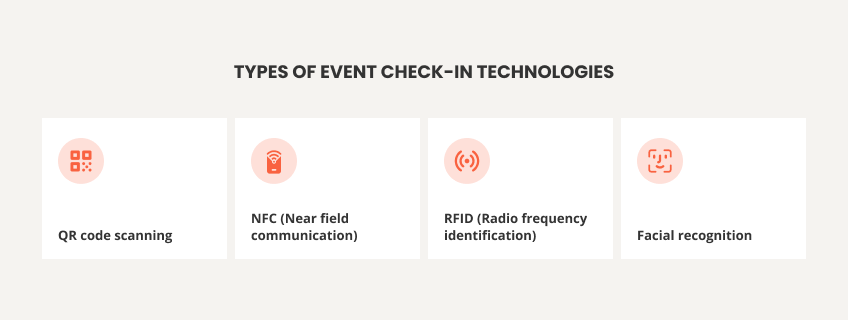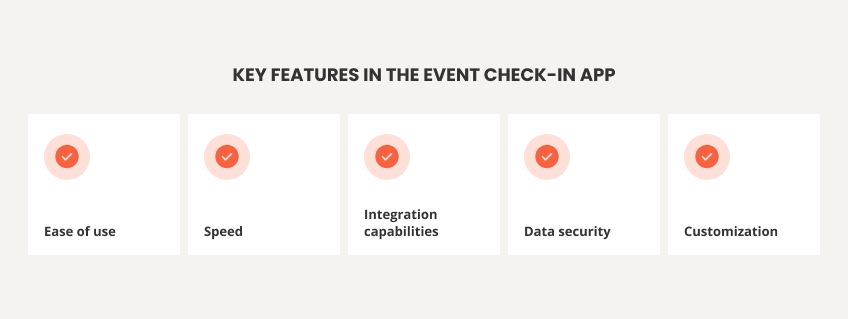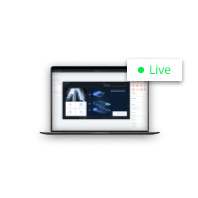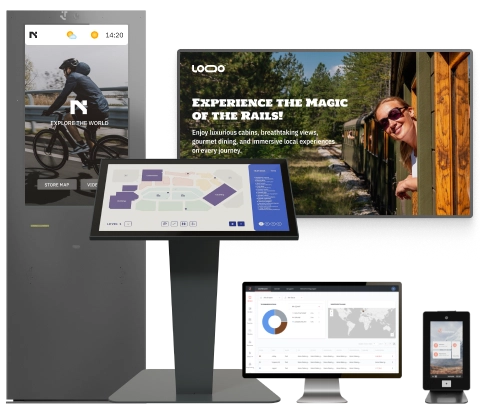
Choosing the right event check-in solution is crucial for the success of any event, as it sets the tone from the moment attendees arrive. An efficient check-in process not only enhances attendee satisfaction with your brand, but also streamlines operations and improves data management. With a variety of technologies and features available, it can be challenging to determine the best solution. This guide will help you navigate the options and select the ideal check-in system tailored to your specific needs.
Take the first step towards a smarter, more efficient manufacturing environment with friendlyway.
Importance of Efficient Check-in Processes
The check-in process is a crucial first point of contact that can set the tone for the entire event. An efficient check-in system ensures a smooth start, enhances the overall customer experience, reduces wait times, and allows for better management of event logistics. With the right check-in solutions, such as self-service kiosks and tablet computers, businesses can streamline operations, improve attendee satisfaction, and gather valuable data for future events.
Current Challenges in Event management
Event management comes with many challenges, from handling large crowds to ensuring that all logistical elements are in place. One of the primary issues is managing the check-in process efficiently, especially for large-scale events. Traditional methods, like manual check-ins, are time-consuming and prone to errors, which can lead to long queues, frustrated attendees, and operational inefficiencies. In today’s digital age, attendees expect seamless and quick interactions, making outdated check-in processes a significant drawback.
Event Check-In Solutions

Types of event check-in technologies
There are various technologies available for event check-ins, each catering to different needs and scales of events. These include:
- QR code scanning: a quick and efficient method where attendees receive a QR code via email, which they scan upon arrival.
- NFC (near field communication): uses contactless cards or devices to check in attendees quickly and securely.
- RFID (radio frequency identification): ideal for large events, RFID allows for rapid check-ins and can also be used for tracking attendee movements within the event.
- Facial recognition: an emerging technology that provides a seamless and secure check-in experience by recognizing attendees’ faces.

Key features in the event check-in app
When choosing the best event check-in app, look for features that will enhance the experience for both attendees and organizers:
- Ease of use: intuitive interfaces that require minimal training ensure that both staff and attendees can navigate the system effortlessly.
- Speed: solutions that can handle high volumes of check-ins quickly are essential to prevent long lines and frustration.
- Integration capabilities: the ability to integrate with customer relationship management (CRM) systems, marketing tools, and other existing systems is crucial for seamless data flow and comprehensive attendee management.
- Data security: robust measures to protect attendee data, including encrypted data transmission and secure storage, are vital for maintaining trust and complying with regulations.
- Customization: flexibility to tailor the solution to specific event needs allows for a personalized event check-in process that aligns with your event’s unique requirements.
Selecting a solution with these features ensures efficient operations, enhanced attendee satisfaction, and streamlined event management.
Assessing Your Business Needs
Event size, type, and frequency
The right check-in solution depends largely on the size, type, and frequency of your events. Smaller events might benefit from simple QR code scanning, while larger, more frequent events could require the robustness of RFID or facial recognition technology. Consider the complexity and scale of your events to choose a solution that fits best.
Budget considerations
Pricing is a critical factor in choosing a check-in solution. While advanced technologies like facial recognition or RFID might offer superior efficiency and features, they also come at a higher cost. Balance your need for functionality with budget constraints to find a solution that provides the best value.
Integration with existing systems
Seamless integration with your existing CRM, marketing tools, and payment systems is essential. This ensures smooth data flows between platforms, providing a unified view of attendee information and streamlining operations.

Comparing Different Check-In Solutions
Software vs. hardware solutions
Software-based solutions, such as mobile apps, offer flexibility and ease of use, while hardware-based solutions, like check-in kiosks and RFID systems, provide robustness and reliability. Consider the nature of your events and the environment in which they will take place when choosing between these options.
Mobile vs. kiosk-based check-in options
Mobile check-ins are convenient for attendees and can reduce the need for physical infrastructure. However, kiosk-based solutions can handle higher volumes and provide a more controlled check-in process. Evaluate your event’s specific needs to determine which option is more suitable: mobile devices or kiosks.
Evaluating User Experience
Attendee perspective
From the attendee’s perspective, the check-in process should be quick, intuitive, and hassle-free. Long wait times and complicated procedures can detract from the event experience. Ensure that the solution you choose prioritizes automation and attendee convenience.
Staff and organizer usability
Staff and organizers need a system that is easy to use and manage. Look for solutions that offer comprehensive training and customer support, as well as intuitive interfaces that simplify the check-in process.
Training requirements
Evaluate the training requirements for each solution. Some advanced technologies may require more extensive training, which could add to your overall costs and preparation time.

Security and Data Management
Data protection and privacy compliance
Ensure that the check-in solution complies with data protection regulations such as GDPR or CCPA. Attendee data must be handled securely to prevent breaches and maintain trust.
Real-time reporting capabilities
Real-time reporting is crucial for monitoring attendance and managing event logistics on the fly. Choose a solution that offers robust reporting features to keep you informed throughout the event.
Essential security features
Look for features such as encrypted data transmission, secure storage, and access controls to ensure that sensitive information is protected at all times.
Discover how the right solution can enhance efficiency and impress your attendees.
Cost Considerations
Initial setup costs
Initial setup costs can vary widely depending on the technology and scale of the solution. Be sure to factor in hardware, software, and any necessary infrastructure changes.
Ongoing costs and ROI
Consider ongoing costs such as software licenses, maintenance, and support. Evaluate the potential return on investment by assessing how the solution can improve efficiency, attendee satisfaction, and data insights.
Scalability and Flexibility
Handling multiple events
If your business frequently hosts multiple events, look for a solution that can easily scale up to handle increased volumes. This ensures that your system remains efficient even as your needs grow.
Customization options
Customization is key to ensuring that the check-in solution meets your specific needs. Look for options that allow you to tailor the interface, data collection fields, and other aspects to fit your event requirements.

Integration Capabilities
CRM and marketing tool integration
Integration with CRM and marketing tools can provide a comprehensive view of attendee interactions and help in post-event follow-up strategy and analytics. Choose a solution that supports seamless integration with your existing systems.
Payment gateway compatibility
For paid events, ensure that the check-in solution can integrate with your payment gateway. This allows for a streamlined process where attendees can pay and check in smoothly.
Support and Vendor Evaluation
Vendor customer service
Good customer service from the vendor is essential for resolving issues quickly and ensuring smooth operations. Evaluate vendors based on their support offerings, response times, and customer satisfaction.
Reputation and user reviews
Research vendor reputation and read user reviews to gauge the reliability and performance of their solutions. Positive feedback from other users can provide valuable insights into what you can expect.
Conclusion
Choosing the right event check-in solution is crucial for ensuring smooth operations and enhancing the attendee experience. By considering factors such as event size, budget, integration capabilities, and user experience, you can select a solution that meets your needs and supports your business goals.
FAQ
Mobile check-ins offer flexibility and convenience, while interactive kiosks solutions provide robustness and can handle higher volumes.
Event check-in software can streamline data collection, provide real-time computing and insights, and integrate with other tools for comprehensive data analysis.
Yes, some solutions are tailored to specific industries, offering features that address unique challenges and requirements.
Look for features like encrypted data transmission, secure storage, and compliance with data protection regulations.
Costs include initial setup fees, ongoing software licenses, maintenance, and potential training expenses.
Cloud-based solutions offer scalability and remote access, while on-premises solutions provide greater control over data and security.




